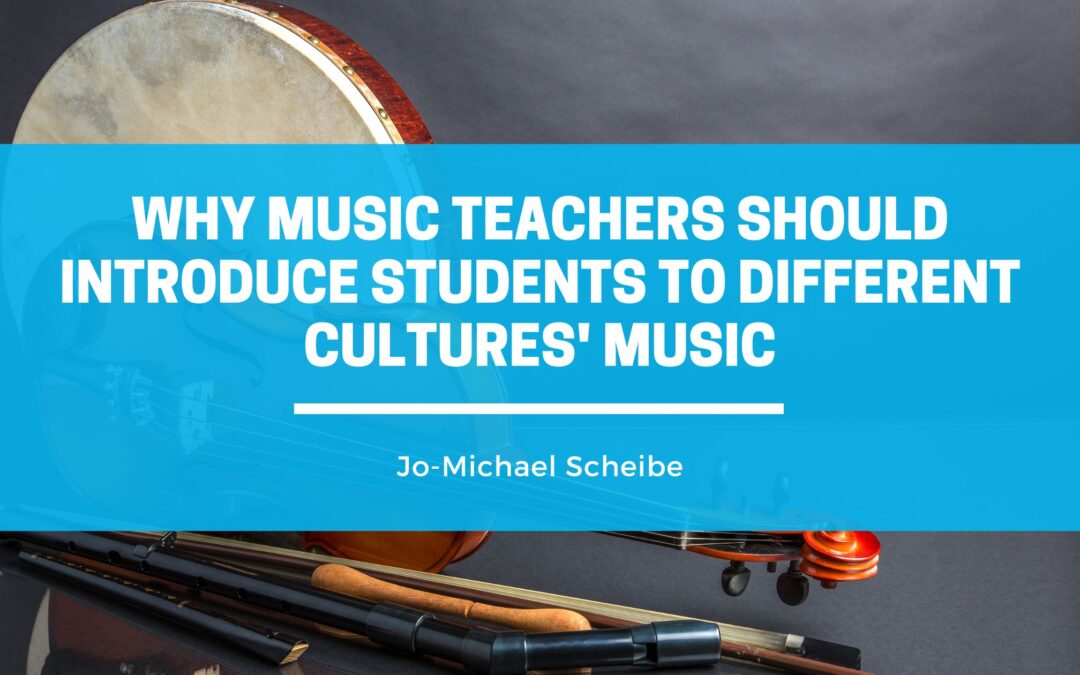Music is a universal language that transcends boundaries and connects people from different cultures and backgrounds. As music teachers, we are responsible for exposing students to the rich diversity of musical traditions from around the world. Introducing students to different cultures’ music gives them a broader perspective and a deeper appreciation for the global tapestry of musical expressions.
Here are several compelling reasons music teachers should incorporate diverse cultural music into their curriculum.
Cultural Understanding and Empathy
Exposing students to different cultures’ music fosters cultural understanding and empathy. Music is deeply rooted in cultural traditions, reflecting a particular community or society’s values, beliefs, and history. By exploring music from various cultures, students can gain insight into the lives and experiences of people from different backgrounds. This exposure cultivates empathy and appreciation for diversity, promoting a sense of inclusivity and respect within the classroom and beyond.
Musical Horizons
Introducing students to diverse musical styles expands their musical horizons. Students may miss out on the vast array of musical possibilities by focusing solely on one genre or tradition. Exploring different cultures’ music exposes students to various instruments, rhythms, melodies, and harmonies that they may not encounter otherwise. This exposure enriches their musical palette and broadens their creative potential, encouraging them to think outside the box and explore new artistic avenues.
Musical Skills and Techniques
Moreover, studying different cultures’ music enhances students’ musical skills and techniques. Each culture has its own unique musical practices and performance techniques. Students can acquire new skills and broaden their technical abilities by learning music from different cultures. For example, studying African drumming techniques or Indian classical music can improve students’ sense of rhythm and develop their coordination. Such cross-cultural musical exploration enhances students’ overall musicianship and enriches their musical vocabulary.
Becoming Global Citizens
Exposure to different cultures’ music encourages students to become global citizens. In an increasingly interconnected world, students must develop a global perspective. Music offers a gateway to exploring and understanding different cultures, fostering open-mindedness and cross-cultural communication. Students gain insights into the similarities and differences between cultures by engaging with diverse musical traditions, promoting cultural appreciation and global awareness.
Interdisciplinary Learning
Furthermore, incorporating different cultures’ music into the curriculum supports interdisciplinary learning. Music intertwines various disciplines, such as history, geography, anthropology, and social studies. By studying the music of different cultures, students can explore the historical, geographical, and social contexts in which the music is created. This interdisciplinary approach encourages students to make connections between music and other subjects, promoting a holistic understanding of the world.
Music teachers play a vital role in exposing students to different cultures’ music. By incorporating diverse musical traditions into the curriculum, music teachers foster cultural understanding, expand students’ musical horizons, enhance their musical skills, encourage global citizenship, and support interdisciplinary learning. By embracing the richness and diversity of music from around the world, students develop a deep appreciation for cultural differences and a profound sense of unity through the power of music.

